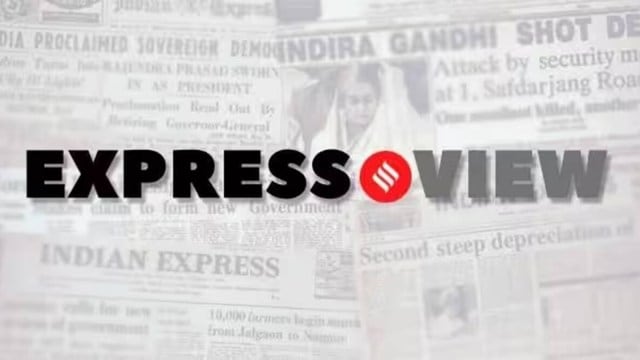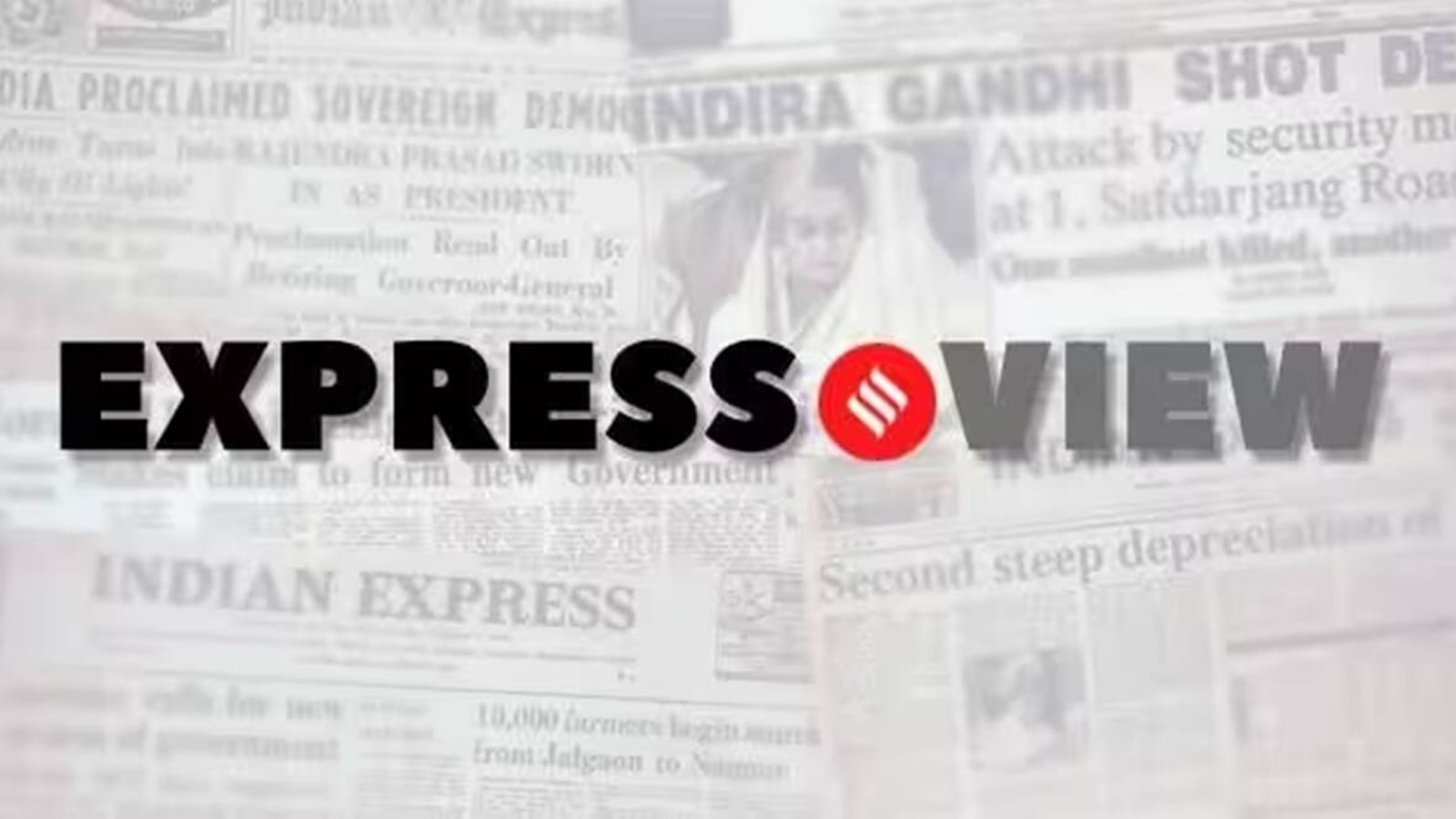
Jan 17, 2025 07:04 IST First published on: Jan 17, 2025 at 07:04 IST
It is not surprising that the BJP should seize upon what Rahul Gandhi said while speaking to party leaders at the inauguration of the new Congress headquarters in the capital: “Do not think that we are fighting a fair fight… we are now fighting the BJP, the RSS and the Indian state itself”. A battery of BJP ministers, leaders, spokespersons have immediately picked out the “…Indian state itself” part of Rahul-speak and brought out an array of rehearsed spectres to slap him with — Gandhi’s comments point to his “Urban Naxal links” and belong to the “George Soros playbook” of subversion, they show that he is speaking for an “eco-system” and “deep state” bent on “breaking India and dividing our society”. The BJP’s is a political critique, it thrives on an overreading. And yet, having said that, it must also be pointed out that there is something deeply problematic about Gandhi’s apocalyptic “all institutions are captured by the BJP” framing.
It is one thing to say that the BJP, armed with a winner-takes-all and take-no-prisoners attitude, does not hesitate to weaponise its mandate to assert dominance and cramp spaces for political opponents and institutions. But to suggest, as Gandhi has done earlier, and as he did again on Wednesday, that the entire system is rigged, to point fingers at the conduct of the Election Commission, for instance, without presenting any verifiable evidence — in fact, his 1 crore extra voters in six months in Maharashtra figure is wrong — or to paint a wide-ranging conspiracy that seamlessly encompasses the EC, investigative agencies and RSS chief, is not just overblown and mistaken but also counter-productive. Gandhi’s rhetoric seems frozen and stilted in its persistent underestimation of the diversity of moving parts, and the range of opportunities and openings that are built into the design and practice of India’s large and sprawling constitutional democracy. The deep pessimism embedded in Gandhi’s worldview is also a political dead-end. It does a grave disservice to his standing and role as the Leader of Opposition and top leader of his party. If all is corrupted and captured, as he says it is, what is the raison d’etre for Congress and the Opposition, and where is the space for politics? In a sense, Gandhi is also walking into the trap the BJP has set for him — after all, the BJP constantly tries to paint him into a hard left corner, from where he will find it difficult to move to the centre, the only place from which anyone can hope to govern a country of India’s diversities.
And even though words must be seen alongside their meanings, the fact is that in politics, words matter. It is the responsibility of the leader to choose them carefully. Earlier, Gandhi has referred to India as a union of states — which it is — and framed the union as being in opposition to a nation — which it is not. Equating the political fight against the BJP-RSS as one against the “Indian state” itself is to conflate the BJP government with India’s state. It shows an inability to articulate the big idea, to make crucial distinctions. His petulance is disquieting, it hurts the opposition he now professes to lead.
Discover the Benefits of Our Subscription!
Stay informed with access to our award-winning journalism.
Avoid misinformation with trusted, accurate reporting.
Make smarter decisions with insights that matter.
Choose your subscription package


